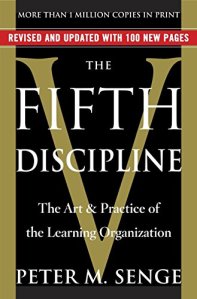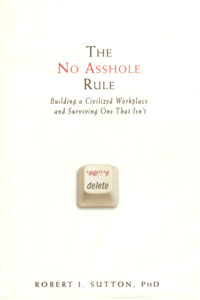
The Fifth Discipline: The Art and Practice of the Learning Organization
by Peter M. Senge
Senge writes, “I believe that, the prevailing system of management is, at its core, dedicated to mediocrity. It forces people to work harder and harder to compensate for failing to tap the spirit and collective intelligence that characterizes working together at their best.”
The subtitle is about the learning organization, but the book is also very much about systems thinking.
Continue reading “The Fifth Discipline”

